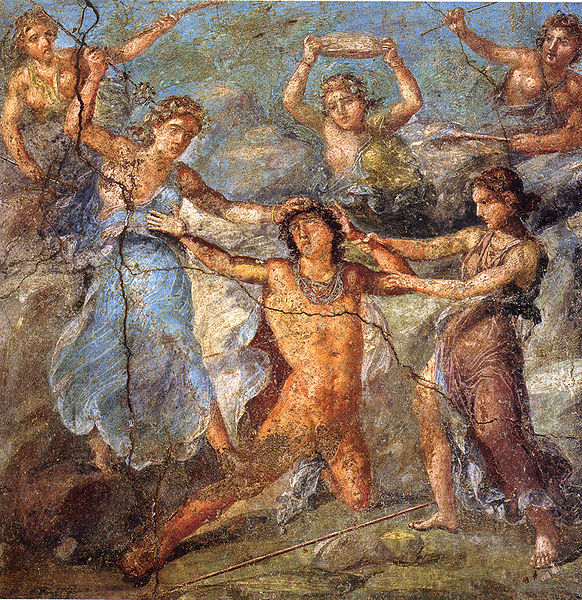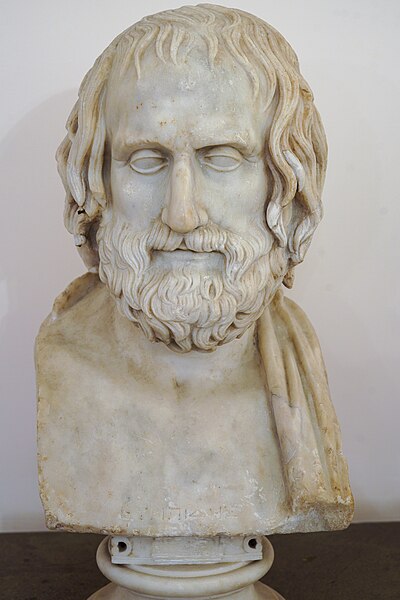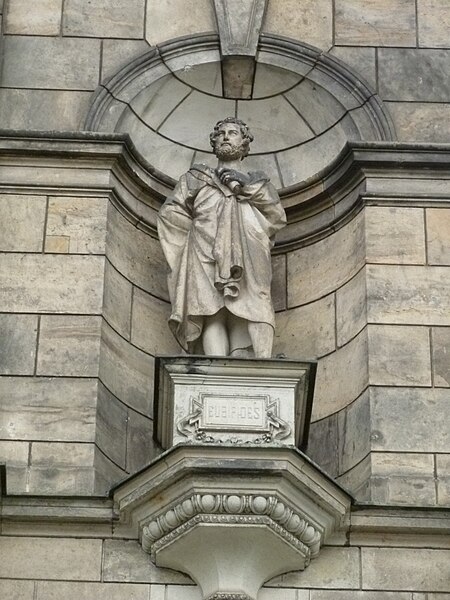The Bacchae is an ancient Greek tragedy, written by the Athenian playwright Euripides during his final years in Macedonia, at the court of Archelaus I of Macedon. It premiered posthumously at the Theatre of Dionysus in 405 BC as part of a tetralogy that also included Iphigeneia at Aulis and Alcmaeon in Corinth, and which Euripides' son or nephew is assumed to have directed. It won first prize in the City Dionysia festival competition.
Pentheus being torn apart by Agave and Ino, Attic red-figure vase painting
American student production, 2012
Roman fresco from Pompeii depicting Pentheus being torn by maenads
Ramona Reeves and Lynn Odell in director Brad Mays' stage production of Euripides' The Bacchae, 1997, Los Angeles
Euripides was a tragedian of classical Athens. Along with Aeschylus and Sophocles, he is one of the three ancient Greek tragedians for whom any plays have survived in full. Some ancient scholars attributed ninety-five plays to him, but the Suda says it was ninety-two at most. Of these, eighteen or nineteen have survived more or less complete. There are many fragments of most of his other plays. More of his plays have survived intact than those of Aeschylus and Sophocles together, partly because his popularity grew as theirs declined—he became, in the Hellenistic Age, a cornerstone of ancient literary education, along with Homer, Demosthenes, and Menander.
Bust of Euripides
2nd century AD statue of Euripides, Louvre, Paris
19th century statue of Euripides in a niche on the Semperoper, Germany
Ancient Roman wall painting from House of the Vettii in Pompeii, showing the death of Pentheus, as portrayed in Euripides's Bacchae







